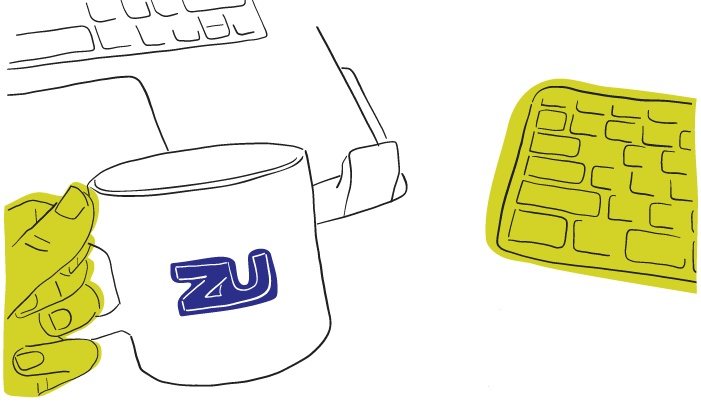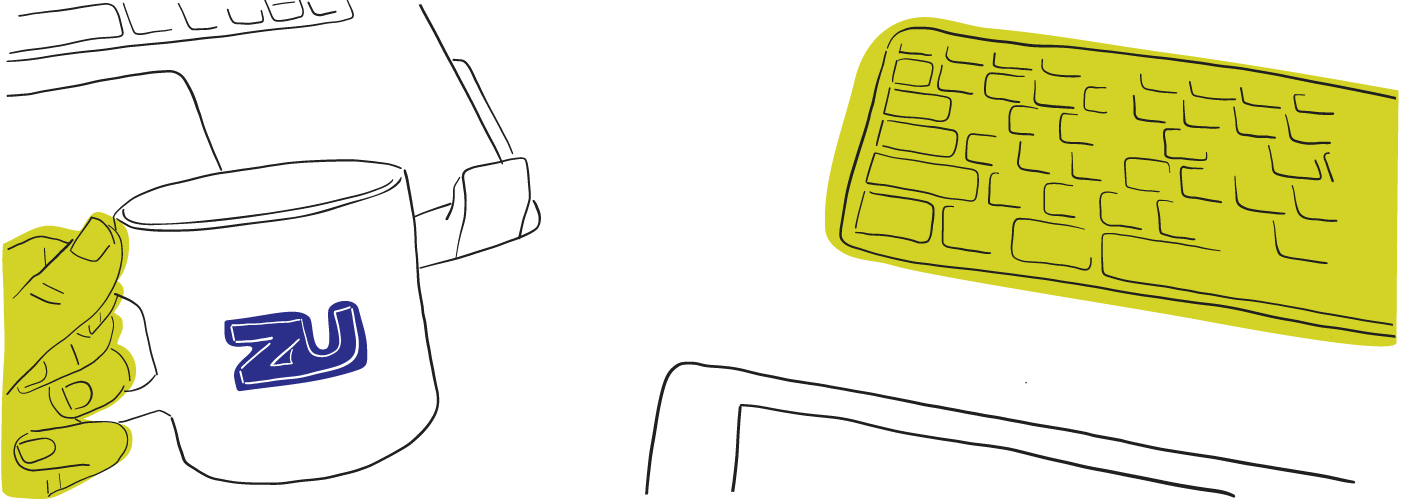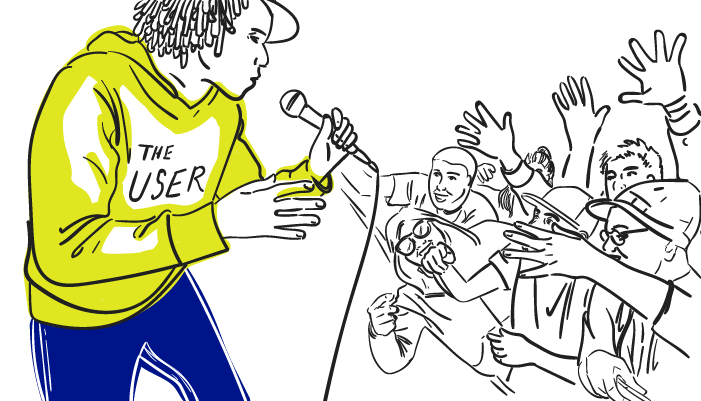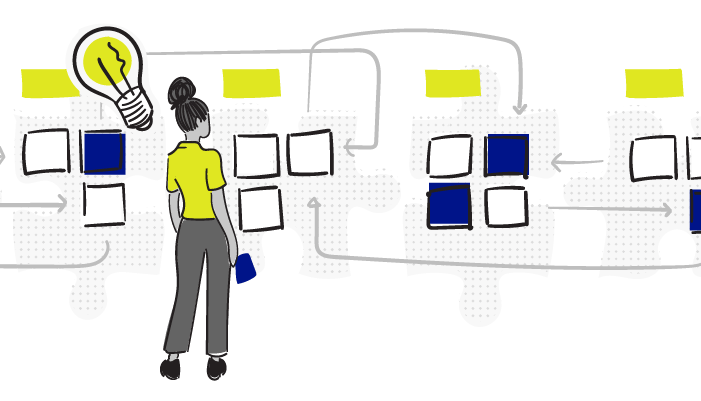

Hello Saskatoon. The Internet has arrived.
Hello Saskatoon. The Internet has arrived.

Ryan
Lejbak
Chief Executive Officer,
Founding Partner
Chief Executive Officer,
Founding Partner
When zu started out back in 1995, there was no such thing as Internet in the home or at work. In fact, zu was one of the first businesses in the city to have internet access, when on February 8, 1995, WBM began offering that service. Soon after, the Interactive community began to evolve.
In 1995, there were a few “clubs” around; SMUG (Saskatoon Mac Users Group) was the most active and most of the people at zu became members, often logging into their BBS on a 2400 baud modem (I remember getting a 14.4k modem which seemed as fast as a race car at that time). But this was a small group, with a limited focus.
The first “big thing” in our industry was the development of the Saskatoon FreeNet, which gave people free access to the Internet in late 1995 or early 1996. I remember having late-night meetings in our office and holding open houses at the public library where several hundred people would show up. It is remarkable to look back and realize that people would stand in line for a few hours to wait for internet access at the lone public terminal at the main library. Being involved in the FreeNet and getting web access to everyone was a pretty cool thing to witness.
We soon recognized that there was a big world out there. Being based in the prairies meant that we would have to travel to learn new things. There was not a lot going on in the Saskatoon “new media” scene at the time. Tony and I went to a half dozen or so MacWorlds in San Francisco, Boston and New York. We learned a lot and always came home with a few thousand dollars worth of software that looked great on the demo floor, but never really worked. This taught us a lesson about how successful businesses needed peers to bounce ideas off of, and that was when we decided to put some effort into developing a community. That was the best business decision we ever made.
As the “dot-com” explosion took off around the turn of the century, we started realizing how much talent there was in Saskatoon and around the province. Since most people did not have the budgets to travel, we thought it would be a good idea to start bringing outside knowledge here. It was an active decision to be on the board and become President of the Saskatchewan New Media Developers Association (later called SaskInteractive and now called SIMA). At the time, this organization was successful in organizing networking events and workshops which started to build capacity in the province.
After gaining success provincially, we started getting our shoulders tapped to sit on some national committees, so I volunteered to work with the Cultural Human Resource Council’s New Media Steering Committee and became a founding member of the Canadian Interactive Alliance. All of this was done to help Saskatchewan digital firms gain national attention, which is what happened. It also allowed me to travel and see what was going on around the country and the US, so that we could implement some of the best ideas to grow our industry in Saskatchewan.
As zu’s business grew and we saw other small, successful events take off in other cities, we thought we should start bringing them to Saskatoon. That is what led us to have the first BarCamp in Saskatoon in 2006 (one of the first in the world and only the second in Canada).
We also started bringing in knowledge experts and speakers from around the world to teach zu, as well as the whole community, some new tricks. I think the highlights for me were Peter Merholz, formerly of Adaptive Path, who I consider the U2 of UX; Daniel Burka, now of Google Ventures and one of the main people behind Digg; and Saul Colt, the smartest man in the world. These sessions helped grow the community, and a stronger community makes for a stronger industry.
Doing those events helped spark some bigger dreams and zu got involved in SaskInteractive, MoSo and TEDx. Of course every event had many drivers, and people like Deborah Black, Mike Klein, Krystal Kolodziejak, Daren McLean, Harley Rivet, Michelle MacDonald, Depesh Parmer, John Costa and Rod Chometa should be commended for having the vision to get involved.
Now, we see events that are more focused, like Ladies Learning Code, CSSS student nights, HelloWorld, JavaScript Developers, Geek Girl Dinners and more. While zu is not actively involved in organizing these events, we are proud to support them through volunteering, lending space and sponsorship.
I am proud that we are still a company that supports local events. I firmly believe that a stronger community helps the entire industry, and good companies are community builders. That is why we participate in everything we can that relates to the digital industry.
There was another big change in the industry that we started seeing around 2007 when mobile was in its infancy. Before 2007, it seemed you needed several people to work on a project which meant that most people had to work on a team.
When Apple released the iPhone and opened the App Store, that all changed. Not only for mobile, but for all forms of interactive. Instead of being on a team, or working in a large company, one or two people could start a company and make it grow. This was around the time that the term Start-Up began to take hold.
Seeing companies who have been around for a while, like Noodlecake and Vendasta, start off small and grow into world leaders has been awesome. And the next wave of smaller companies, like OneStory, Skip the Dishes, and Kejenga will hopefully grow like like them. These companies, and others, have helped diversify the interactive economy and brought people from other cities into Saskatoon, which has fueled the growth of the industry.
Over the past 20 years, zu has employed 204 people. Many of them have come and gone, some have come back again, and others have left to start their own businesses. It is great to see companies like Coconut Calendar, Island Collective, 7 Shifts, Rock and Bloom, Deep Dish Digital, Meshy and others being successful. I still consider many of the people who work at these firms close friends. I miss them too, and love our casual conversations and deep discussions that occur in formal and informal sessions. I wish they all still worked at zu, but it makes me happy to know that they are being successful elsewhere.
Over the years, zu has generated millions and millions in Saskatoon-based economic activity, providing a lot of cool technology jobs. We have put our clients on the map digitally and helped them generate best practices emulated by their peers. We have inadvertently been a bit of a digital university for many employees, many of whom have gone off to start their own digital companies. We have influenced the development of the local digital workforce by direct involvement in industry associations, technology educators and various economic boards. And we have been part of the movement which demonstrates that Saskatchewan can do work on par with, and often above, the best in the world. That, is what makes us tick.



